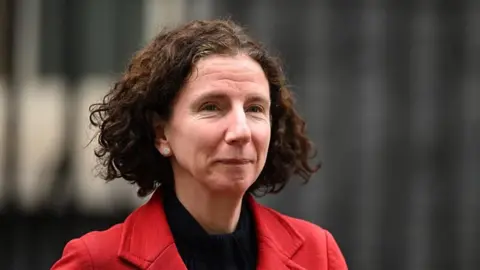Labour’s Minister for International Development, Anneliese Dodds, has resigned in response to the Prime Minister’s decision to reduce foreign aid funding in favor of increased defense spending. The move has sparked a heated debate within the party and broader political circles.
Dodds, a vocal advocate for international development, stepped down citing concerns that the cuts would undermine the UK’s global commitments to humanitarian aid. Meanwhile, senior Labour figure Harriet Harman expressed regret over her resignation, stating that she would have preferred Dodds to remain in government and work to reshape the remaining development agenda.
A Controversial Shift in Policy
The UK government recently announced a significant reallocation of budgetary resources, diverting funds from foreign aid to strengthen defense capabilities. The decision comes amid growing geopolitical tensions and a renewed focus on national security. According to officials, the shift is intended to bolster the UK’s military readiness in response to emerging global threats.
However, critics argue that slashing foreign aid could have severe consequences for some of the world’s most vulnerable populations. The UK has historically been a leading donor in global humanitarian efforts, and the cuts may weaken its influence on the international stage.
Harriet Harman: “Dodds Should Have Stayed”
Veteran Labour politician Harriet Harman weighed in on the issue during Sky’s Electoral Dysfunction podcast, stating that she respected Dodds’ decision but wished she had remained in her role to guide what remains of the international development strategy. Harman emphasized the importance of maintaining a focus on humanitarian efforts despite budget constraints.
“We need to make sure that even with a reduced budget, the UK continues to play a vital role in global development,” she said. “Anneliese could have worked to ensure that what’s left is used as effectively as possible.”
Mixed Reactions from Political and Public Figures
Dodds’ resignation has drawn mixed reactions from politicians and international aid organizations. Some Labour MPs have voiced their support for her stance, calling on the government to reconsider the budget cuts. Others believe that prioritizing defense is necessary in light of current security challenges.
Foreign aid organizations have also expressed deep concern over the cuts, warning that they could severely impact ongoing humanitarian projects. “The UK has been a key player in global development,” said a spokesperson for a leading international aid group. “Scaling back funding at this time could jeopardize critical programs supporting education, healthcare, and disaster relief.”
Government Defends Decision
Despite the backlash, the government has defended its policy shift, arguing that national security must take precedence. A spokesperson for the Prime Minister stated that the decision was made after careful consideration of the country’s strategic needs.
“The world is changing, and our priorities must reflect that,” the spokesperson said. “We remain committed to international development, but we must also ensure that our defense forces are equipped to handle emerging threats.”
What’s Next for Labour and UK’s Development Agenda?
With Dodds stepping down, Labour now faces the challenge of appointing a new Minister for International Development who can navigate the party through this contentious policy change. The resignation also raises broader questions about the future of the UK’s role in global humanitarian efforts.
As debates continue, political analysts predict that foreign aid will remain a key topic in upcoming parliamentary discussions. Whether the government will revisit its budgetary decisions in response to criticism remains uncertain.
For further updates on this developing story, visit Daljoog News.







